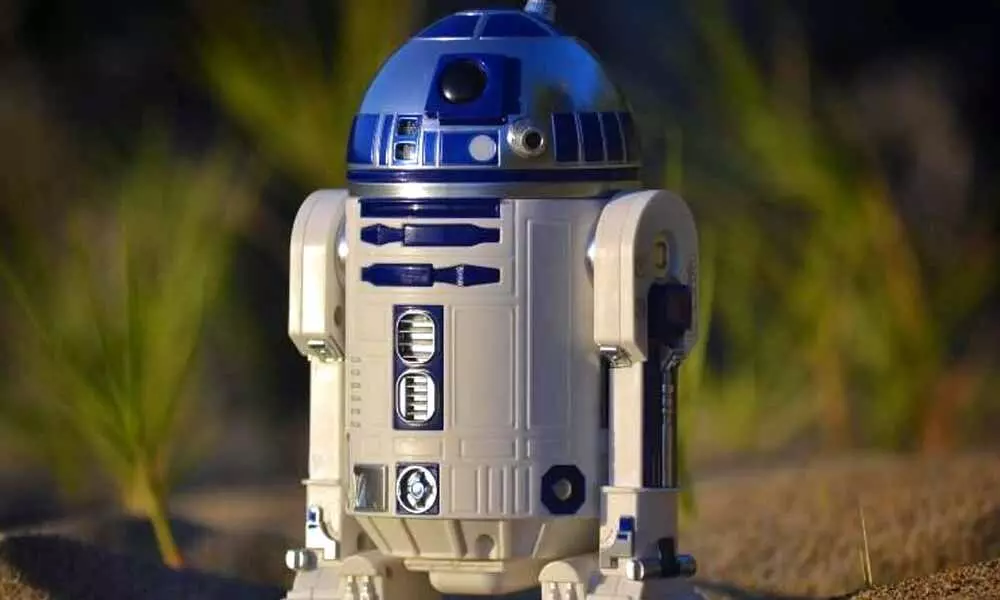Robots may become heroes in war on coronavirus pandemic across world
 For representational purposes
For representational purposesOne team of robots temporarily cared for patients in a makeshift hospital in Wuhan, the Chinese city where the COVID-19 outbreak began.
San Francisco: Long maligned as job-stealers and aspiring overlords, robots are being increasingly relied on as fast, efficient, contagion-proof champions in the war against the deadly coronavirus.
One team of robots temporarily cared for patients in a makeshift hospital in Wuhan, the Chinese city where the COVID-19 outbreak began.
Meals were served, temperatures taken and communications handled by machines, one of them named "Cloud Ginger" by its maker CloudMinds, which has operations in Beijing and California.
"It provided useful information, conversational engagement, entertainment with dancing, and even led patients through stretching exercises," CloudMinds president Karl Zhao said of the humanoid robot.
"The smart field hospital was completely run by robots." A small medical team remotely controlled the field hospital robots.
Patients wore wristbands that gathered blood pressure and other vital data.
The smart clinic only handled patients for a few days, but it foreshadowed a future in which robots tend to patients with contagious diseases while health care workers manage from safe distances.
Patients in hospitals in Thailand, Israel and elsewhere meet with robots for consultations done by doctors via videoconference.
Some consultation robots even tend to the classic checkup task of listening to patients' lungs as they breathe.
Alexandra Hospital in Singapore will use a robot called BeamPro to deliver medicine and meals to patients diagnosed with COVID-19 or those suspected to be infected with the virus in its isolation wards.
Doctors and nurses can control the robot by using a computer from outside the room, and can hold conversations with the patient via the screen and camera.
The robot reduces the number of "touch points" with patients who are isolated, thereby reducing risk for healthcare workers, the hospital's health innovation director Alexander Yip told local news channel CNA.
Robotic machines can also be sent to scan for the presence of the virus, such as when the Diamond Princess cruise ship cabins were checked for safety weeks after infected passengers were evacuated, according to the US Centers for Disease Control.
Additionally, hospitals are turning to robots to tirelessly rid room, halls and door handles of viruses and bacteria.
US firm Xenex has seen a surge in demand for its robots that disinfect rooms, according to director of media relations Melinda Hart.
Xenex's LightStrike robots have been used in more than 500 healthcare facilities, with the number of deployed bots rising due to the pandemic, Hart said.
"We are getting requests from around the world," Hart said.
"In addition to hospitals, we're being contacted by urgent care centers, hotels, government agencies and pharmaceutical companies" to disinfect rooms.
Shark Robotics in France began testing a decontamination unit about a month ago and has already started getting orders, according to co-founder Cyril Kabbara.



















